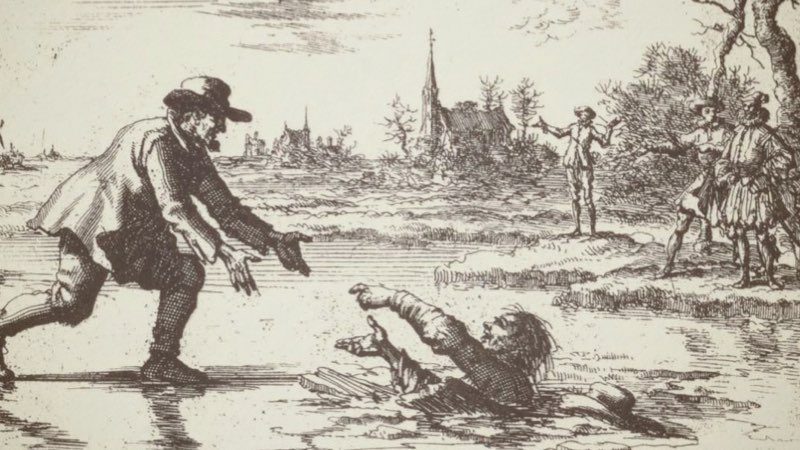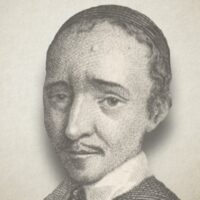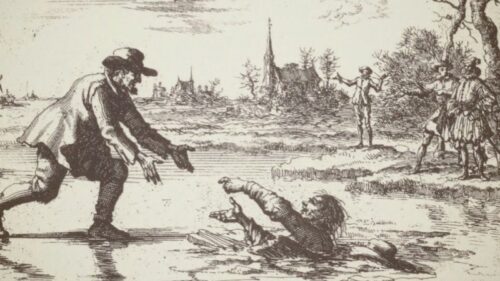
2. Of the Divine Service of the Church
Of the Divine Service of the Church
The state and divine service of this church have varied from the beginning according to the different periods in which it existed and flourished. From Adam to Noah, from Noah to Abraham, from Abraham to Moses, from Moses to Christ, from Christ to the end of the world, God ordained, for each of these periods, different customs, as regards the external divine service of this church; also different signs, seals, and appurtenances; though it is, was and shall be, the same church, the same people, and also the same God whom they served, still serve, and shall serve unto the end.
Before Adam fell, divine service had no respect to Christ; He had not yet been presented to men as a means of salvation, much less as their only Prophet, Priest, and King, or the only true way, entrance and door to heaven, through whom alone men can be saved; but their happiness depended on their obedience to the command not to eat of the tree, of the knowledge of good and evil. Gen. 2:16, 17. [The religion before the fall of Adam, with which we begin, was of short duration; hence little is said of it in the word of God.]
After the fall, divine service had respect altogether to Christ, Acts 4:12. Truly God promised His Son to men, represented Him by types, and finally gave Him to them. In the meantime, the fathers who were before the advent of Christ, hoped in Him, longed for His coming, and ordered and founded all their divine services, whatever these, according to the time and the command of God, might be, on His only and eternal reconciliation. Compare Gen. 3:15; 22:18; 49:10,18 with John 5:46; 8:56; I Peter 1:10, 11.
Touching the external mode of divine service, this was not uniform at all periods, but varied very much; for it seems that in the time from Adam to Noah, men followed the implanted light of nature, or, to speak properly, the engraven law of the conscience or the mind; observing no essential and express ceremonial commandments, excepting Abel’s offering, and the commandment that the sons of God, that is, the members of His church, should not marry the daughters of men, that is, those who were not members of the church of God; which was enjoined under a severe penalty. Compare Gen. 4:4 with Gen. 6:3. [Abel’s offering was by faith. Compare Gen. 4:4 with Heb. 11:4—The sons of God were commanded to render obedience to the Spirit of God; which injunction they did not heed in the days of Noah.]
In the time from Noah to Abraham, there was added God’s command, not to eat blood, nor to shed human blood. At that time God made a covenant with Noah and every living creature; that He would destroy them no more by a flood; and He set the bow in the clouds as a sign of the covenant. Compare Gen. 9:4, 5 with verses 11, 12, 13.
In the time from Abraham to Moses God instituted the circumcision among His people; which served for the purpose of distinguishing the descendants of Abraham, of whom the church of God consisted, from all other nations, and as a seal of the covenant which God had made with Abraham and his seed, in particular. See Gen. 17:10, 11, 12; compare with Rom. 4:11.
From the time of Moses to Christ God gave, in addition to circumcision, many laws and commandments, too numerous to mention, which were to be observed by His people. These consisted in manifold sacrifices, oblations, purifications, etc., for the performances of which holy times were set apart, as the passover, Pentecost, Feast of Tabernacles, new moons, and fast days; together with sacred places, as the Tabernacle of Moses, the Temple of Solomon; Shiloh, Mizpah, Moriah, etc.; also holy persons, as prophets, priests, Levites, singers, and doorkeepers. See Exodus, Leviticus, Numbers, and Deuteronomy.
From the time of Christ to the end of the world, God, through Christ, has taken away the ceremonies of the Mosaic law as well as the signs by which it is sealed; and, to the acknowledgment of the grace of Christ, commended the observance of other ceremonies and signs, as baptism, supper, etc. These external commandments, together with faith, and true penitence of life, which is the spiritual and moral virtue, the Lord has very strictly enjoined upon all members of the church of Christ. See Matt. 28:18-20; Mark 16:15, 16, compared with I Cor. 11:2-28; also the entire epistles of the apostles, which treat of the fulfillment of the Mosaic ceremonial law, as Rom. 10:4; Gal. 4:10, 11 and 5:1-4; Col. 2:16.
Having now briefly shown the diversity of the external divine service of the church of God, through all the times, it behooves us to state, on the other hand, in what points this church has always continued the same.
Thieleman J. Van Braght (1625-1664) was an Anabaptist who is best known for writing a history of the Christian witness throughout the centuries entitled “The Bloody Theater or Martyrs Mirror of the Defenseless Christians who baptized only upon confession of faith, and who suffered and died for the testimony of Jesus, their Saviour, from the time of Christ to the year A.D. 1660” (1660).
Thieleman J. Van Braght, Martyrs Mirror




